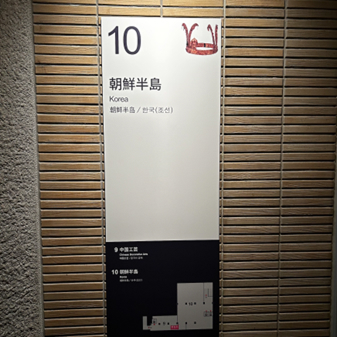Global History
Ikegami Keitoku

International Christian University Master's Program
Main achievements
Field of research
Peace Studies, Cultural Property Issues
The kind of researcher I want to become
I aspire to become a researcher who makes long-lasting academic contributions, rather than being temporarily recognized. Additionally, I aim to be a researcher who can engage in conversations with anyone, not just within academia. I wish to interact with a wide range of actors, including those in politics, government, business, and the private sector, and ultimately dedicate myself to contributing to society.
My research theme
I am profoundly interested in examining how national values in East Asia, particularly between Japan and the Republic of Korea, both integrate with and conflict against universal values, and how these dynamics manifest as concrete issues. With careful attention to the interrelation of values, memory, and emotions underlying these phenomena, I am particularly concerned with elucidating how the collective memories of each country are reproduced. In other words, my research is focused on the analysis of discourses surrounding historical incidents and the representations conducted under the guise of commemoration, for example. Moreover, from a broader perspective, I intend to pursue further research on the concept of a ‘culture of peace’ within the framework of peace studies, and to investigate what constitutes the ‘culture of reconciliation’ that the field of reconciliation studies seeks to establish.
<Tentative Title>
Exhibitions of ‘Looted Cultural Property’ and the Reproduction of Memory
– An Analysis of Narratives about the Ogura Collection in Japan –
This paper examines how so-called “looted cultural properties” are represented in Japan and how such representations contribute to the reproduction of collective memory. Focusing in particular on the discourses surrounding the exhibition of the Ogura Collection at the Tokyo National Museum, this study analyzes the processes through which discursive spaces are created and how these spaces become entangled with particular memories. What emerges from this analysis is a dual characteristic: on the one hand, the exhibition exemplifies what has been described as Japan’s “amnesia” toward its historical past; on the other hand, it holds latent potential to serve as a bridge across the distortions that have long complicated Japan – South Korea relations. By engaging with the multifaceted nature of cultural properties, this paper explores the possibilities for reconciliation through a focused case study of the Ogura Collection.
Self Introdution
<Motivation for Participating in the Project>
I am deeply grateful to have been given the opportunity to participate in this project as an early-career researcher. Within the framework of this initiative, young scholars are particularly encouraged to produce work in English and contribute to the global academic discourse. As someone born into this era and place. and fortunate enough to be granted such opportunities. I feel a strong sense of responsibility to do my utmost in pursuit of humanity’s enduring aspiration for peace.
<Previous Research and Future Development in Reconciliation Studies>
My recent research has focused on the Ogura Collection, situated within the broader context of Japan–South Korea cultural property issues, and I have been fortunate to present my work on several occasions. Through these experiences, and the generous feedback I have received from senior scholars, I have developed a growing interest in how international norms shape Japan–Korea relations. Moving forward, I aim to explore the relationship between universal values and national interests, while investigating how certain issues come to be recognized and constructed as “problems” in the first place.
One work that has been particularly influential in shaping my thinking on cultural heritage is Making a Bridge out of “Negative Heritage”: Rethinking Japan and South Korea through Cultural Properties by Professors TONOMURA Masaru and NAGASAWA Yuko. The questions raised in that book continue to inspire me, and I hope to deepen my research in this area so that I may one day offer my own response.
Research Image

"Korea" Room 10 in Asian Gallery in Tokyo National Museum

